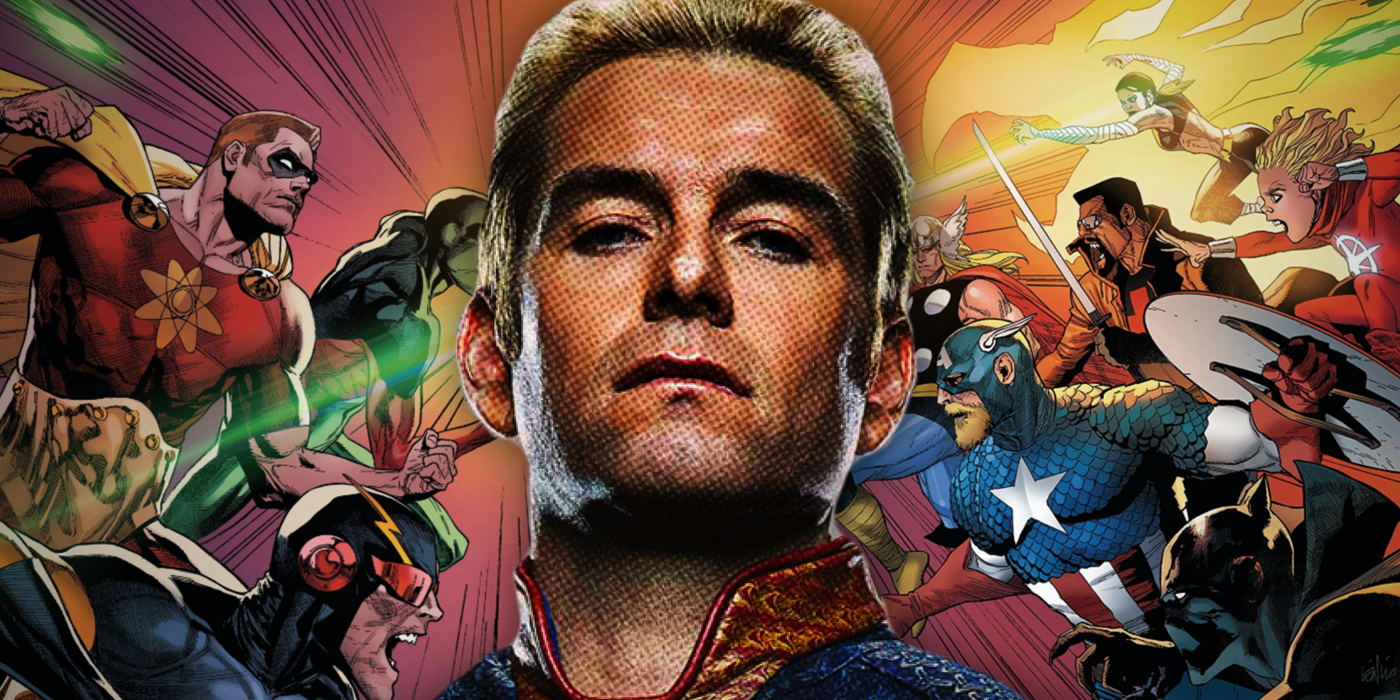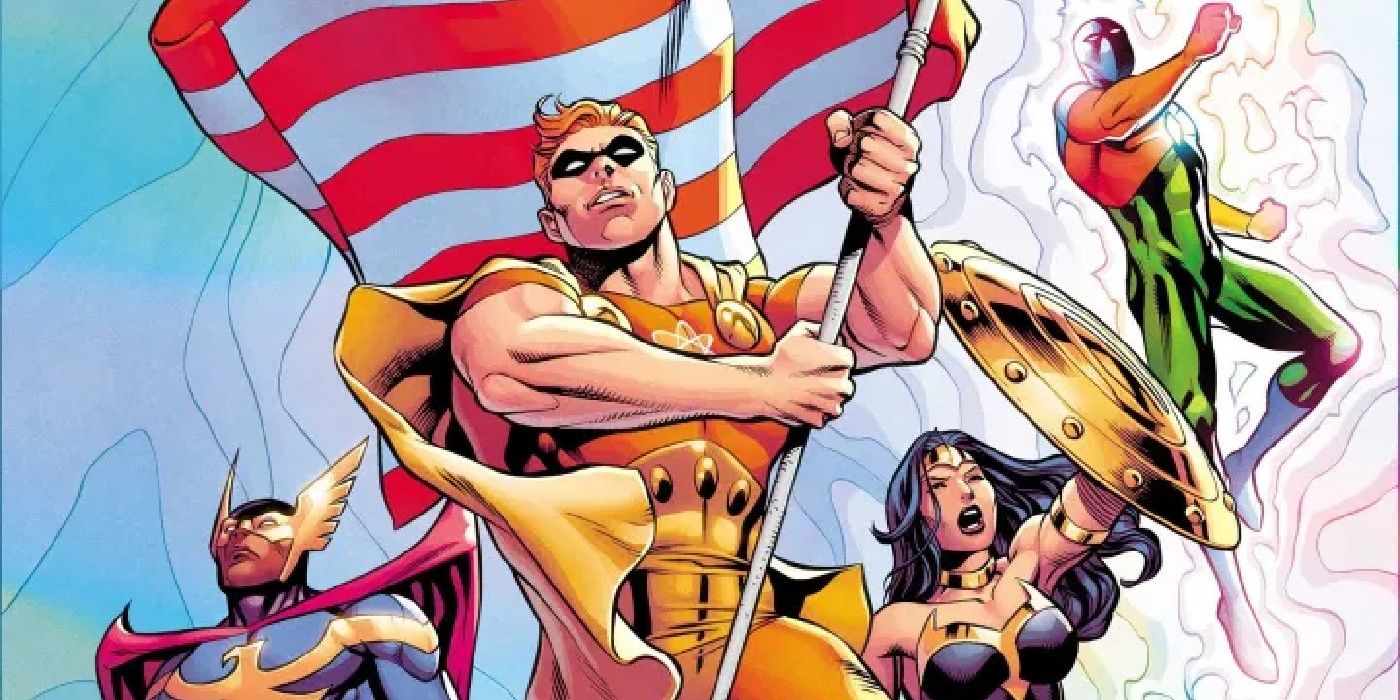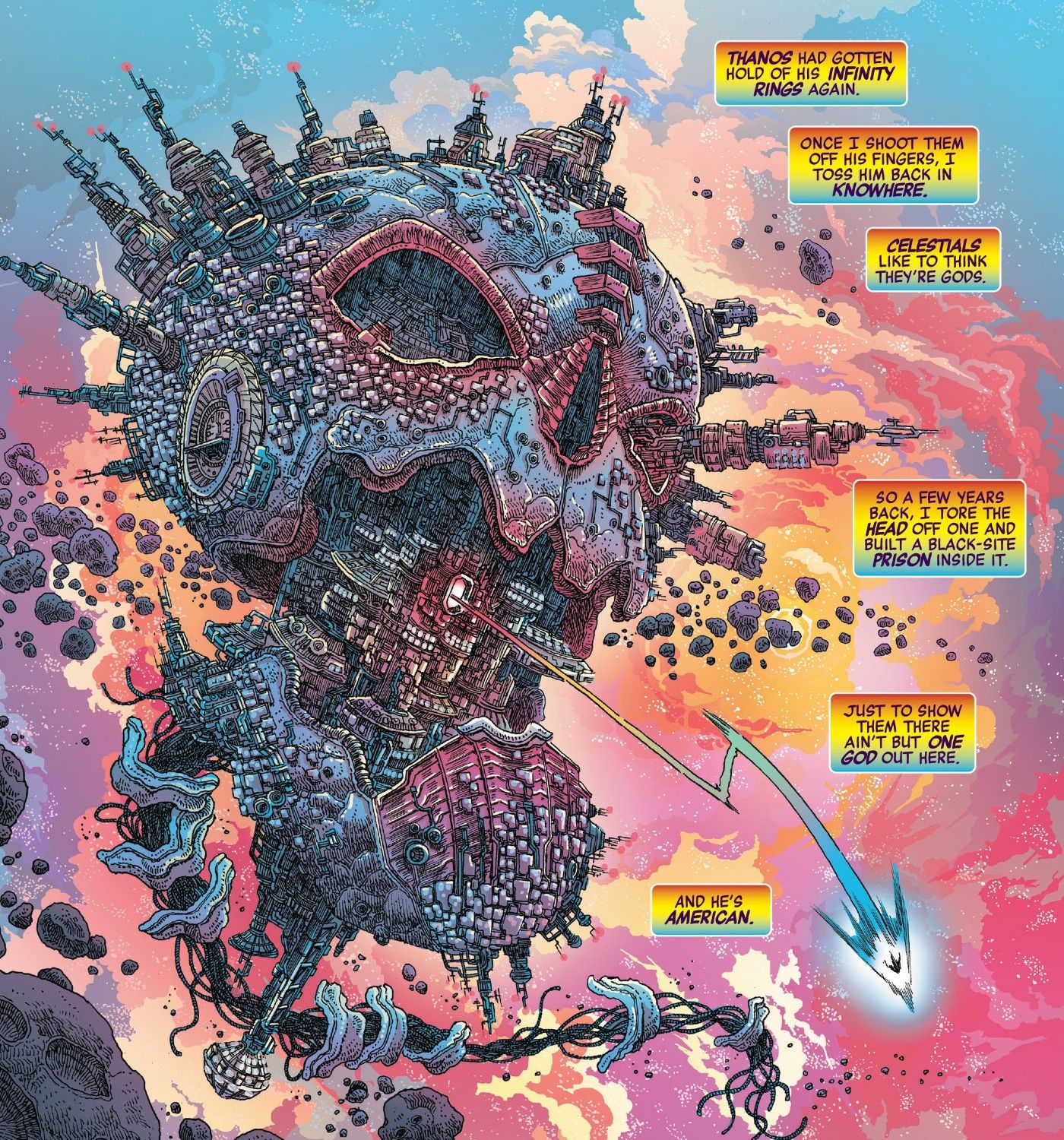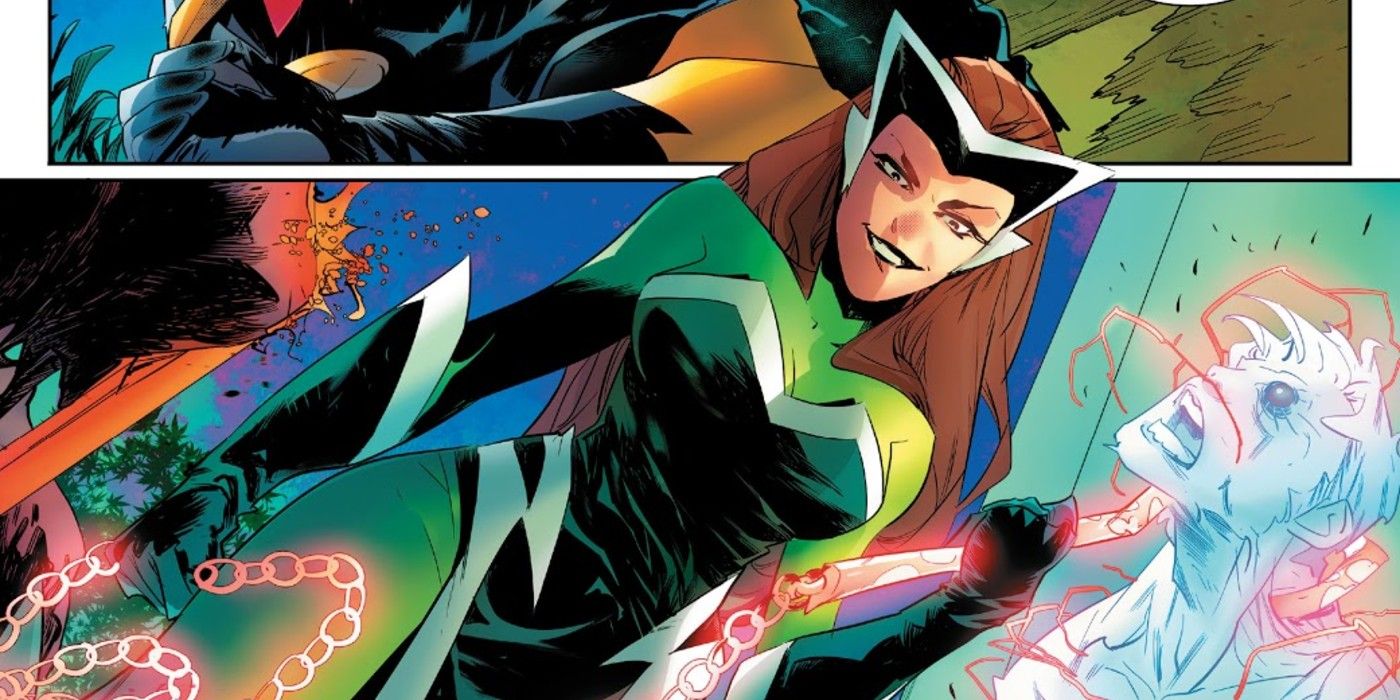Warning: contains spoilers for Heroes Return #1
Marvel's Squadron Supreme was tailor-made to critique the Justice League, however, their big Heroes Reborn event will remind readers of The Boys more than anything DC has ever published. Despite the Squadron's roots, this newest event shows how their evolution over the years has pushed them so far away from what they were originally parodying, that the team would be far more at home in an ultra-violent world like The Boys.
Originally debuting as the villainous Squadron Sinister, the Squadron Supreme quickly grew out of their origins as a hollow Justice League parody. The team's most well-known story from writer Mark Gruenwald sees them taking complete control over their world after a major disaster. Though they are all well-intentioned, their quest for peace eventually leads them to commit horrible acts such as brainwashing criminals and taking away the rights of everyday citizens. Despite Marvel having the perfect opportunity to take their competition down a peg with the Squadron Supreme, their self-titled miniseries portrays them as complex characters with good reasons for doing what they do. The same can't be said for their most recent incarnation.
Masterminded by writer Jason Aaron and a variety of artists, Marvel's new Heroes Reborn event depicts a reality where the Avengers never formed. In their place, the Squadron Supreme of America are Earth's protectors. When the series was first announced, it was easy to assume that it was going to be Marvel's attempt at mocking their competition over at DC. The event is, after all, predicated on the idea that the world would be a much worse place with the Squadron Supreme protecting the world instead of Marvel's more familiar heroes. By the end of the series though, it's apparent that the event was never about the Justice League.
The Squadron Supreme depicted in Heroes Reborn are superficially similar to their Justice League counterparts, but look any deeper than that and the comparison falls apart. Hyperion is the Squadron's Superman, but completely lacks the empathy and kindness which defines Clark Kent. In their places are ultra-nationalism and a brutal sense of justice. Hyperion flies through Galactus' head and kills the Hulk with his heat vision so many times that Marvel's Jade Giant becomes a puddle of goo.
Aside from Nighthawk's critique of Batman, the other Squadron heroes aren't much better or are even actively worse. The Squadron's version of Flash, Blur, is a hyperactive goofball who has immense trouble sitting still, a far cry from the good-natured heroism of Barry Allen. Power Princess's blood-thirsty need for battle has no relation to Wonder Woman's sense of compassion. Even Doctor Spectrum's overzealous protection of space in the name of America is nothing like any of DC's prominent Green Lanterns. All of these heroes display a level of cruelty that shares nothing in common with the main DC Universe's Justice League. Instead, this version of the Squadron Supreme is more reminiscent of someone like Homelander from The Boys.
Intended as a deconstruction of the superhero genre, The Boys is a media franchise that depicts a world filled to the brim with amoral superheroes. Almost every single prominent superhero from Marvel and DC receives some sort of parody or reference, with none being as infamous as their version of Superman, Homelander. Homelander is an absolute monster. He kills frequently and commits heinous acts without a second thought. Despite his public appearance as an upstanding hero, Homelander is everything that Superman isn't. Doctor Spectrum, Power Princess, and Hyperion on the other hand, all share more than a few similarities with the depraved supe.
Doctor Spectrum manages the feat of being worse than Homelander in many respects. In Heroes Reborn #4 by Jason Aaron and James Stokoe, Spectrum's zealous sense of nationalism is put on full display. Far from an even-headed space cop like DC's main Green Lantern, Spectrum is an absolute tyrant. The good Doctor rips the head off a Celestial for being arrogant enough to think it's more of a god than Mephisto. He tortures cosmic beings like Ego just for information. Though Homelander is undoubtedly a fascist, at least his cruelty only extends to those living on Earth. With his near-limitless power, Spectrum takes it upon himself to pre-colonize the stars, preparing the universe for the day when America is able to set roots down on other planets. As horrible and destructive as it is, at least Doctor Spectrum has an ethos, unlike his comrade Power Princess.
In Heroes Reborn #6 from Jason Aaron and Erica D'Urso, readers get a view into the twisted psyche of Power Princess. Unlike her fellow Squadron members, Power Princess has no zealotry for her country or for Mephisto, instead, she's driven purely by an obsessive need for battle. Zarda revels in causing pain, far more eager to fight than to help. When a disoriented Thor arrives at her home, Zarda wastes no time in starting a fight, not even trying to help or understand the broken God of Thunder. Much like Homelander before her, Zarda revels in the destruction her superhero battles bring.
Though Doctor Spectrum reflects Homelander's nationalism and Power Princess reflects his bloodlust, it's Hyperion who brings it all together. Hyperion is fiercely devoted to his country and shows no hesitation with outright murdering any of its perceived enemies. All of this adds up to highlight a key problem with the Squadron Supreme and why the Avengers are the superior heroes. There is no room for redemption with the Squadron. From Hawkeye, to Black Widow, to Scarlet Witch and Quicksilver, the Marvel Universe is filled with former villains who were allowed to grow and become heroes. There's a reason that Heroes Reborn makes it very clear that none of these characters ended up as good guys. None of this would make sense as a critique or commentary on the Justice League. While the League undoubtedly has far fewer former villains among their ranks, heroes like Superman, Wonder Woman, and the Flash are constantly giving their former villains a chance to better themselves.
In contrast, this makes perfect sense as a critique of the ideology presented in The Boys comic series. More than just black and white morality, The Boys shows a black and gray world. Though the titular Boys are ostensibly the series' protagonists, it'd be a stretch to call them real heroes. This myopic and misanthropic view often comes across as angry and condescending, as though the very idea of superheroes was flawed and ridiculous from the start.
This is the real reason why the Avengers defeating the Squadron Supreme in Heroes Return #1 is such a triumph. Characters like Captain America, Thor, and Black Panther are all flawed, yes, but they're also fundamentally good people who want to help better the world. Far from rebuking the Justice League, Heroes Reborn offers a cutting critique on the trend of dark superhero deconstructions that have arisen lately. Ultimately, the misanthropy of The Boys can never beat out the genuine hope and optimism that comes from true heroes.




